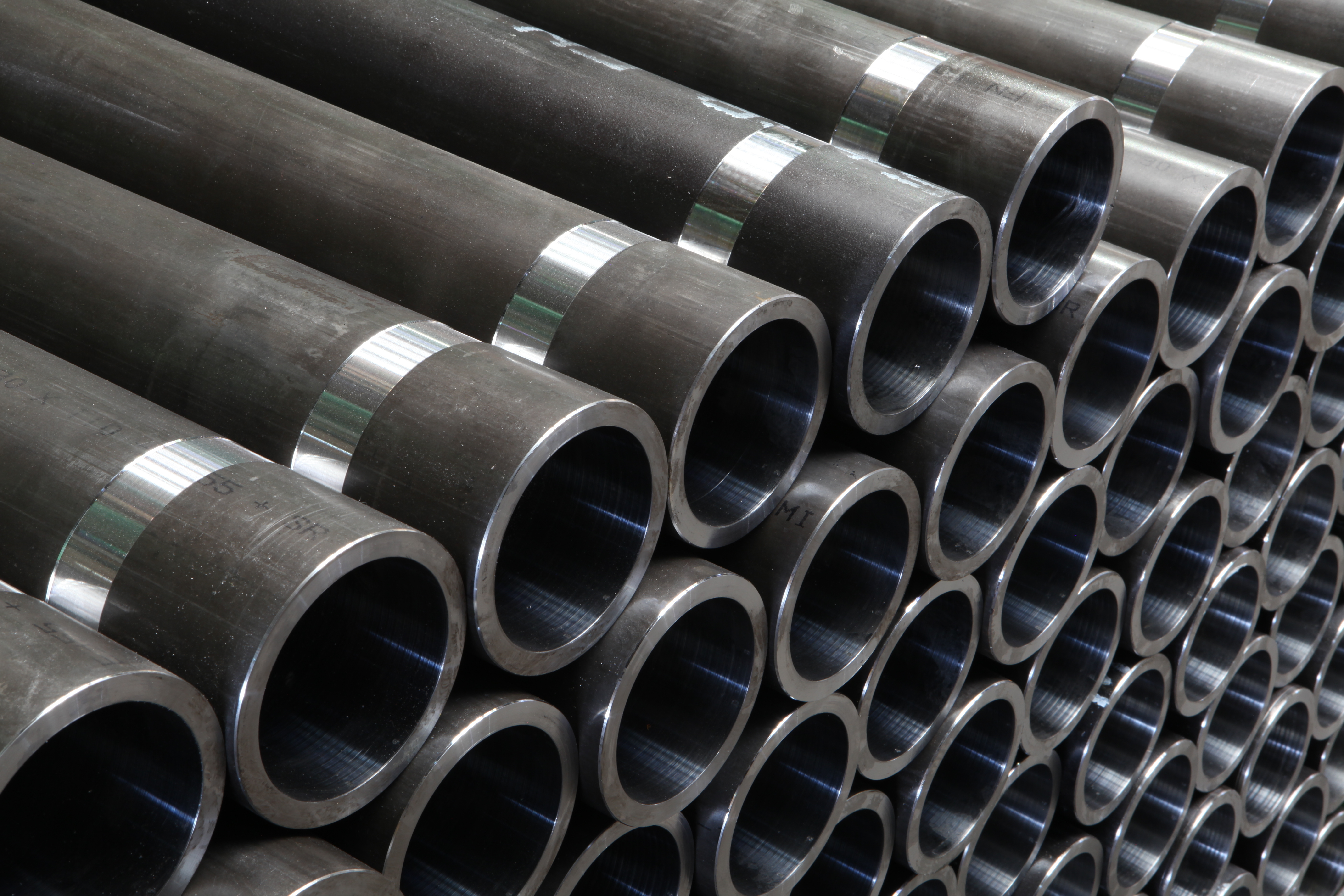Pipe

Steel piping, also known as steel pipe, is a tubular product made from steel and used primarily for the conveyance of fluids and gases.
Manufacturing Process: Steel piping can be manufactured through various methods, including seamless and welded processes.
- Seamless Piping: Seamless steel pipe is produced without any seams or joints, resulting in a uniform and continuous structure. It is commonly used in high-pressure and high-temperature applications where strength and reliability are paramount.
- Welded Piping: Welded steel pipe is made by welding together steel plates or coils to form a cylindrical shape. It is available in a wide range of diameters and wall thicknesses and is suitable for various applications, including pipelines, structural support, and plumbing.
Types of Steel Piping:
- Carbon Steel Pipe: Carbon steel pipe is the most common type of steel piping and is widely used in various industries due to its affordability, strength, and versatility.
- Alloy Steel Pipe: Alloy steel pipe contains additional alloying elements such as chromium, molybdenum, or nickel, which enhance its mechanical properties, corrosion resistance, and temperature resistance. It is often used in high-temperature and corrosive environments.
4. Applications:
- Oil and Gas Industry: Steel piping is extensively used in the oil and gas industry for drilling operations, transportation of crude oil and natural gas, and refining processes. Large-diameter steel pipelines are employed for long-distance transportation of hydrocarbons.
- Water and Wastewater Systems: Steel piping is utilized in water supply and wastewater systems for municipal, industrial, and agricultural purposes. It is durable, corrosion-resistant, and can withstand high pressures, making it suitable for conveying potable water, sewage, and irrigation water.
- Construction and Infrastructure: Steel piping is used in construction for structural support, plumbing, HVAC systems, and fire protection. It is also employed in infrastructure projects such as bridges, tunnels, and underground utilities.
- Industrial Applications: Steel piping finds application in various industrial processes, including chemical processing, power generation, mining, and manufacturing. It is used for conveying fluids, gases, and solids in a wide range of operating conditions.
5. Advantages:
- Strength and Durability: Steel piping offers high strength and durability, making it suitable for demanding applications and harsh environments.
- Corrosion Resistance: Depending on the material and coating, steel piping can exhibit excellent corrosion resistance, ensuring long-term reliability and performance.
- Versatility: Steel piping comes in various sizes, shapes, and grades to meet diverse application requirements, offering flexibility and adaptability.
- Cost-Effectiveness: Steel piping provides a cost-effective solution for fluid and gas transportation compared to alternative materials, offering a balance of performance and affordability.
Steel piping plays a crucial role in modern infrastructure, transportation, industry, and everyday life, providing essential means for the transportation of fluids and gases across various sectors. Its strength, durability, and versatility make it a preferred choice for a wide range of applications worldwide.
ASTM A53
ASTM A106
ASTM A120
ASTM A135
ASTM A500
ASTM A501
ASTM A513
ASTM A519
